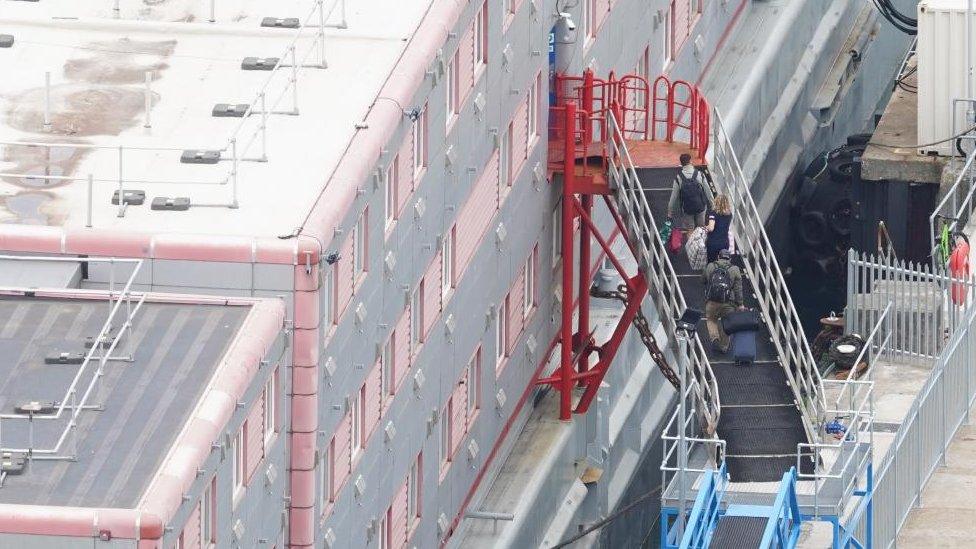Bibby Stockholm: Migrant barge faces legal challenge over fire safety
- Published
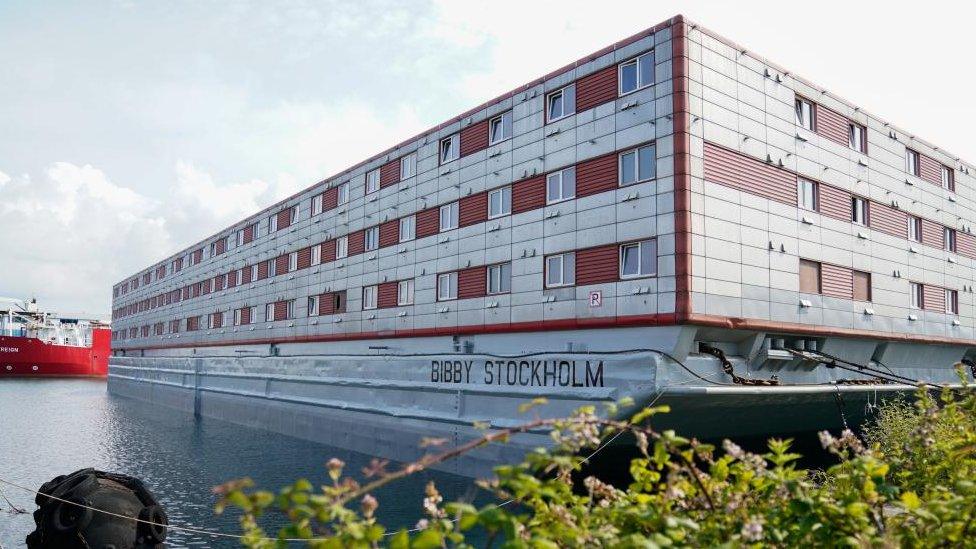
Government plans to accommodate asylum seekers on a barge on England's south coast face a possible legal challenge over fire safety.
Lawyers for the Fire Brigades Union (FBU) have written to Home Secretary Suella Braverman raising issues including overcrowding and fire exit access on board the Bibby Stockholm.
The government has been given until Thursday to respond.
Home Secretary Suella Braverman said: "I am confident the barge is safe."
The Bibby Stockholm is a three-storey barge, currently berthed in Portland Port, Dorset, which is intended to hold around 500 men while they await the outcome of their asylum applications.
The first people were moved on to it at the start of this month, although they were later removed when the Legionella bacteria, which can cause serious illness, was detected.
Matt Wrack, the general secretary of the FBU, said the union had moved towards a legal challenge after spending weeks trying to raise concerns with the government. The union previously described the vessel as a "potential death trap".
In their letter to the Home Office, lawyers for the FBU cited media reports which said the Bibby Stockholm had only 222 single-occupancy rooms, but that additional beds had been placed in each in order to to increase the capacity to 506.
Other reports said that, while the barge had three fire exits, one was not operational because it was at the end of a gangway that had been deemed too steep to be safely used.
A whistleblower in the local authority is also quoted as telling the Times that fire checks in July had led to serious safety concerns and describing the barge as having the potential to become a "floating Grenfell".
The FBU previously asked to meet Ms Braverman to discuss its concerns, but the request was turned down.
"I'm confident that the barge is safe," she told BBC One's Breakfast programme, when asked about the FBU's concerns.
"This barge has accommodated people in the past - asylum seekers, oil rig workers - and barges of this kind have been used to accommodate asylum seekers, for example in Scotland."
The Scottish government said that Ms Braverman's statement was not correct. "No vessels have been used to accommodate people seeking asylum in Scotland," a spokesman said.
"We have made clear to the Home Office that vessels are not suitable accommodation for people seeking asylum."
The spokesman said that the Scottish government had temporarily housed Ukrainian refugees on cruise ships. "Housing asylum seekers in barges cannot and should not be compared," the spokesman said. "There are fundamental differences."
Ms Braverman accused the FBU of "carrying out a political attack" on the government. "They want to stop us, just like we're dealing with the range of forces who want to stop us from stopping the boats... they're all gleeful about the prospect of us not putting people on the barge."
She said the government had followed all the protocols from the fire authority, Dorset Council, the police and the Health and Safety Executive.
Ms Braverman was unable to say on BBC Radio 4's Today programme when people would go back on to the Bibby Stockholm - but it would be "as soon as we have completed all of the relevant checks".
She said she was "frustrated" and "angry" by what had happened, adding: "I take responsibility, the buck stops with me."
A Home Office spokesperson said: "The health and welfare of asylum seekers remains of the utmost priority.
"The Bibby Stockholm successfully completed all fire and safety checks ahead of the first individuals boarding. The vessel completed a statutory inspection and refurbishment before undergoing final preparations to accommodate asylum seekers."
The barge has already faced a number of legal challenges, including from refugee charities representing individual migrants and over whether the government has secured the appropriate planning permissions.
The latest challenge comes as the Home Office considers plans to fit people arriving illegally in the UK with GPS tags as an alternative to detaining them because of a lack of space in the immigration detention estate, according to the Times, external.
Related topics
- Published17 July 2023
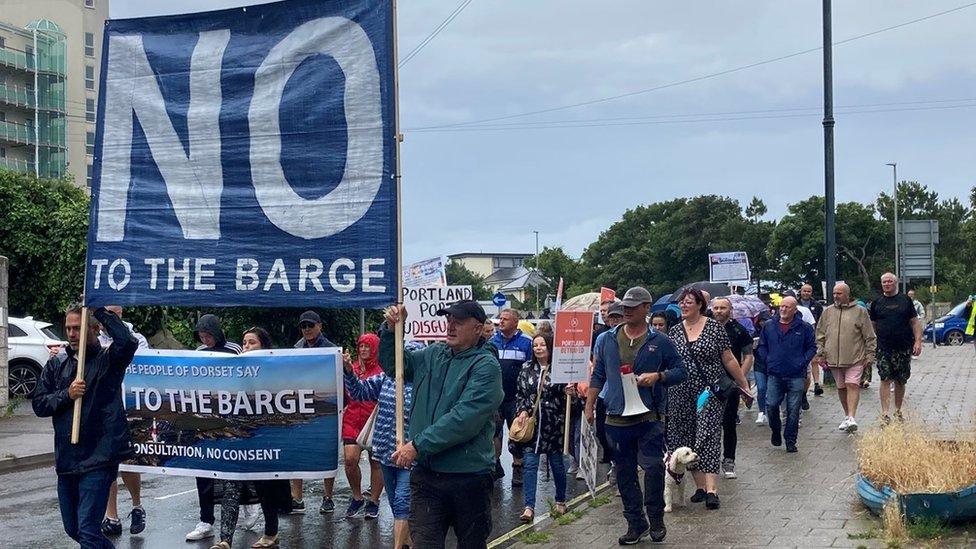
- Published7 August 2023
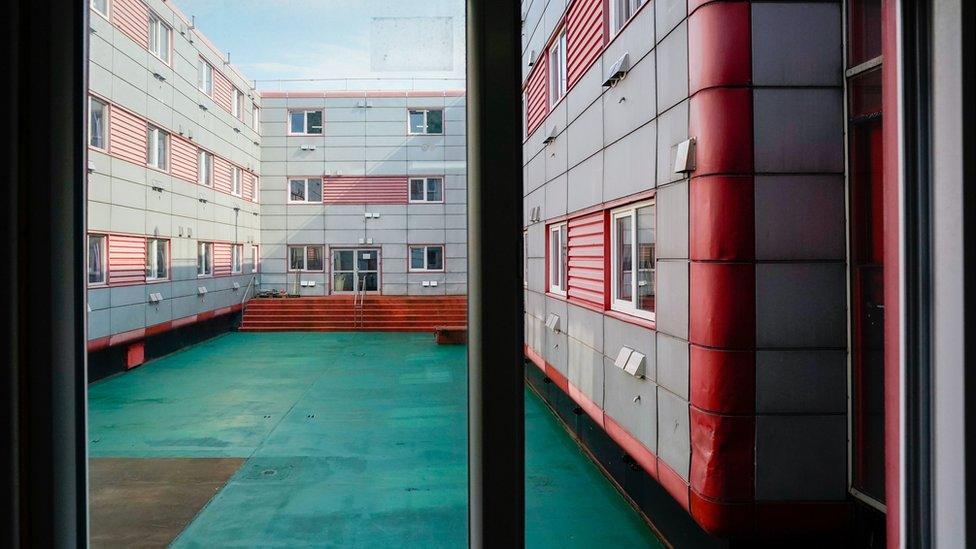
- Published8 August 2023
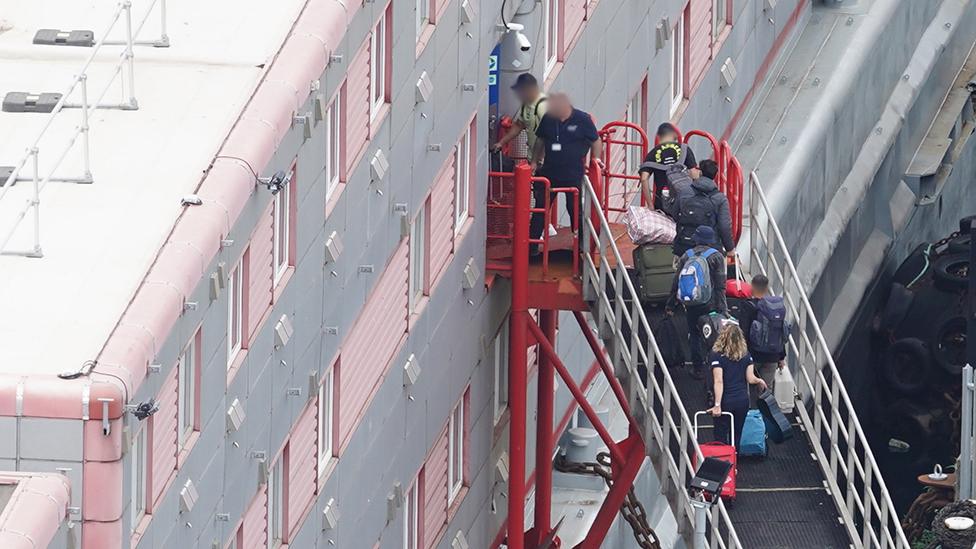
- Published25 August 2023
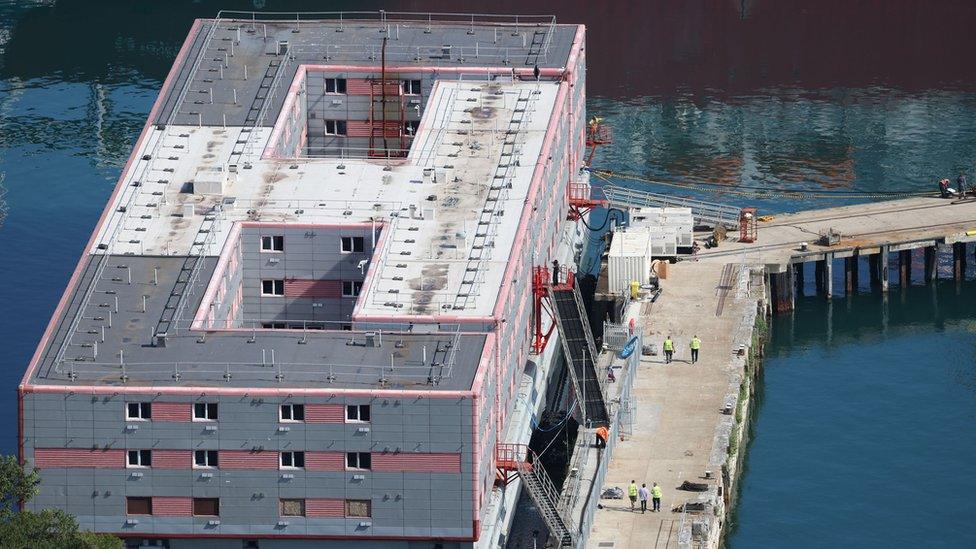
- Published9 August 2023
